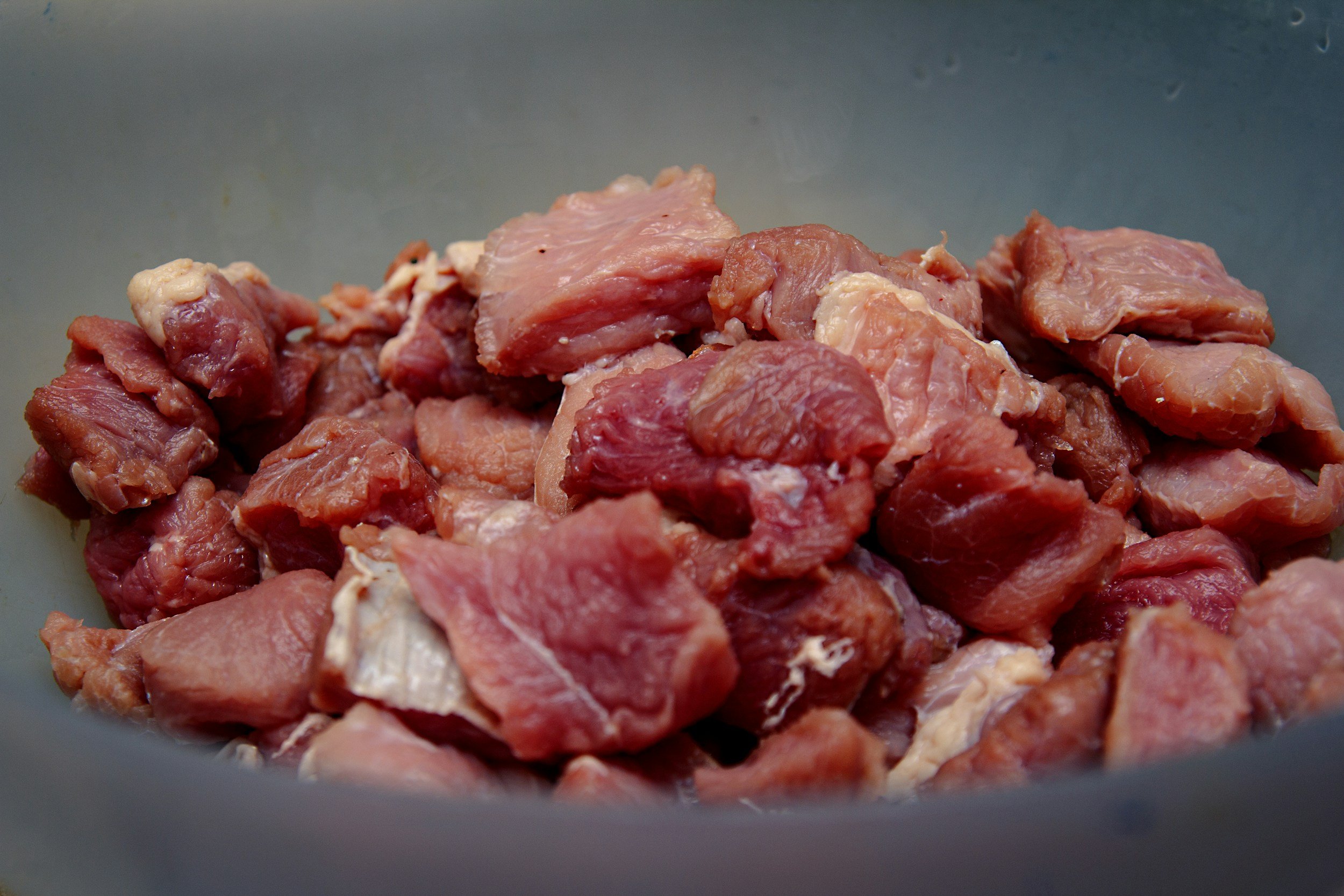
Raw feeding for Health and Behaviour
Raw Feeding for Health & Behaviour
If you have ever looked deeply into feeding raw then you will know of some of the benefits, risks and myths surrounding a raw diet. I have always seen the effects of raw feeding on health and behaviour and just accepted that it is a natural way for a dog to eat but lately have been looking into the 'why' further. As many of my clients are aware I have a dislike for high protein kibble when it comes to some behaviour issues as it can often exacerbate existing nervousness, fear, aggression and sometimes hyperactivity, but for some reason raw feeding - although very high in protein (when compared dry weight to dry weight) - doesn't seem to have the same pitfalls. I wanted to find out why. My research has been a real eye opener in many ways!
Did you know that 90% of serotonin is stored in the epithelium of the dogs gut? Along with dopamine, peptides and enzymes the gut lining is host to so many hormones and neurotransmitters that are essential for health both physical and mental. This part of the body also deals with vitamins. This important role can only occur if the lining is healthy and this relies on beneficial bacteria. If the PH of the gut is correct and the gut is strong and flexible, then the healthy bacteria can flourish and there is no problem with pathogens and similar as the beneficial bacteria wipes out the nasties /unwanted bacteria as well as boosting immune function.
Why is meat and bone so beneficial then? Basically because the dog is a carnivore, the gut is short and geared towards digesting meat at a low PH (acidic), the saliva contains no amylase (this breaks down carbohydrate) only the pancreas produces this enzyme. It should be noted that forcing the pancreas to continuously produce amylase as well as triggering the associated insulin ‘surges’ is no good thing – the dog’s body is not designed to deal with constant excesses of carbohydrate! The way that the dog is made physiologically is perfect for tearing off huge pieces of meat and swallowing them whole without much mechanical action or breaking down of the food in the mouth - this then leaves the stomach to do the majority of the hard work and to play a very important part in the digestive process. The stomach ‘grinds’ and releases acid in order to digest the contents - and this is how it should be! When we feed kibble the gut tends to get very 'out of practise' and can present as 'sensitive', the acid is not released in high quantities as it is not needed for digesting cooked carbohydrate so the PH of the body rises as a consequence. This means that the beneficial bacteria can be crowded out by the unwanted bacteria, and that the gut lining can become very thin through lack of work and poor conditions. The villi that line the intestines don't regenerate as they should making a substandard place for the chemicals that influence health and mood to call home.
This also explains why many dogs that present as 'sensitive' or 'allergic' to certain foods do very well on a raw diet - even dogs with an 'allergy' to chicken can eat vast amounts of chicken in its raw state with no ill effect. The reason being that if the epithelium of the gut is very thin through consistent feeding of inappropriate feedstuffs then it can become 'leaky' which causes the immune system to kick in to attempt to remedy the situation.
So much of the time when we focus on the pathogens and bad bacteria - and in doing so address them through antibiotics, steroids and elimination diet we actually make the whole health and behaviour of the dog worse. If we fed a natural diet the gut would be strong and healthy, and we would likely have no issues whatsoever! As with all holistic intervention this targets the root cause rather than the symptoms and offers additional benefits too! Where raw is concerned none of the nutrients can be broken down through heating as with complete dry food, and the source of minerals, vitamins and amino acids is presented in a completely bio-available form being from a natural source rather than a synthetic replica.
So after much searching I have at least in part answered the question; 'Why does high protein raw feeding not have the pitfalls of high protein complete?' The answer lies in the gut which plays host to so many beneficial bacteria and chemicals that are essential for self-control, energy, balance of mood, happiness and contentment - this can affect mood via the link between gut and brain rather than exclusively via the bloodstream. This two way feedback between gut and brain is not fully understood but we do know that mood is influenced dramatically by diet and gut health, and that raw meat and bones vastly improve the health of the gut.
Hooray for a natural diet, our dogs really are what they eat!
Julia Langlands ACFBA
